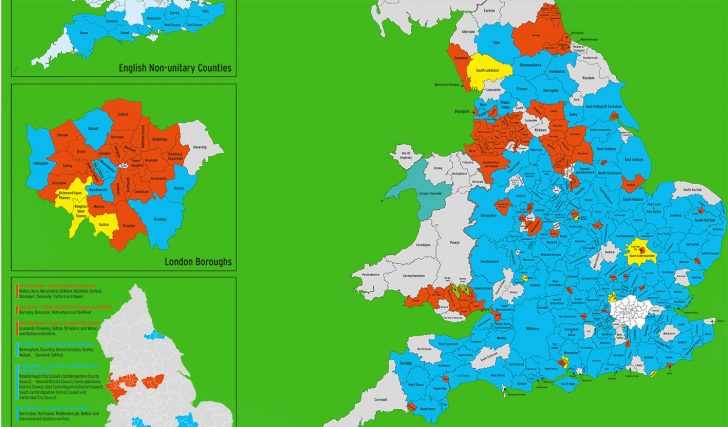
This article was originally published in The MJ on 24 May 2018.
Much of the analysis of the May local elections was inconclusive. Most of it, inevitably, was only framed from a national political standpoint, and looked primarily at winners and losers – without being very clear about which parties actually “won” and which “lost”.
We therefore thought it would be far more interesting to look at whether individual councils’ performance had any correlation with the election results. Were voters able to use their vote to comment on the outcomes that their councils had been delivering? Using our IMPOWER INDEX – a tool which looks at local government productivity across six different domains – we crunched the numbers. To clarify: productivity is not the same as efficiency. Our index doesn’t rank the cheapest councils but rather looks at the outcomes that they deliver.
SPOILER ALERT: There is no correlation.
This statement must come with several important caveats, because we only looked at:
- The 150 top tier authorities, while only just over half (83) had elections
- Changes in control (just nine councils, so not a huge number of data points)
- Productivity during the last financial year
- Changes of political control – not individual seat movements
Nonetheless, our analysis produced two key findings:
1) Councils that did change control did not have low levels of productivity
- The majority of councils that changed control had average or just below average performance, with two of the nine showing well above average productivity. Just one council had well below average productivity.
- Five councils switched control from one party to another. For these councils, productivity was just above or below the national average. (Another four councils shifted from ‘No Overall Control’ to majority party control).
- In Kingston upon Thames, where the Liberal Democrats gained control from the Conservatives, productivity is ranked 13th out of 150 in England for waste and recycling, and 17th for children’s social care. Housing is the council’s poorest area of productivity, being ranked 107th.
- In Plymouth, where Labour gained control from the Conservatives, productivity is 42nd in England for supporting older people, with the worst ranking being in children’s social care, and waste and recycling, where they are 117th.
2) Of the councils with the lowest productivity, few changed control
The chart shows the change in control for the 20 councils with the lowest productivity in each of the six different domains. Poor productivity does not appear to be a strong influencer for voters, even in services like waste and recycling which more people experience.

A 2010 study in the US tried to isolate the impact on voting of events that are outside the control of the government, and for which no government response would be expected. Some of the findings included:
– A win for a local college football team in the 10 days before election day causes the incumbent to receive an additional 1.61 percentage points of the vote.
– A survey conducted during the 2009 NCAA men’s college basketball tournament found that surprising wins and losses affect presidential approval.
The study concluded that personal well-being may influence voting decisions on a subconscious level – and that personal well-being is affected by all sorts of random irrelevant events – including Royal Weddings and FA Cup Finals.
Who’d be a politician?


